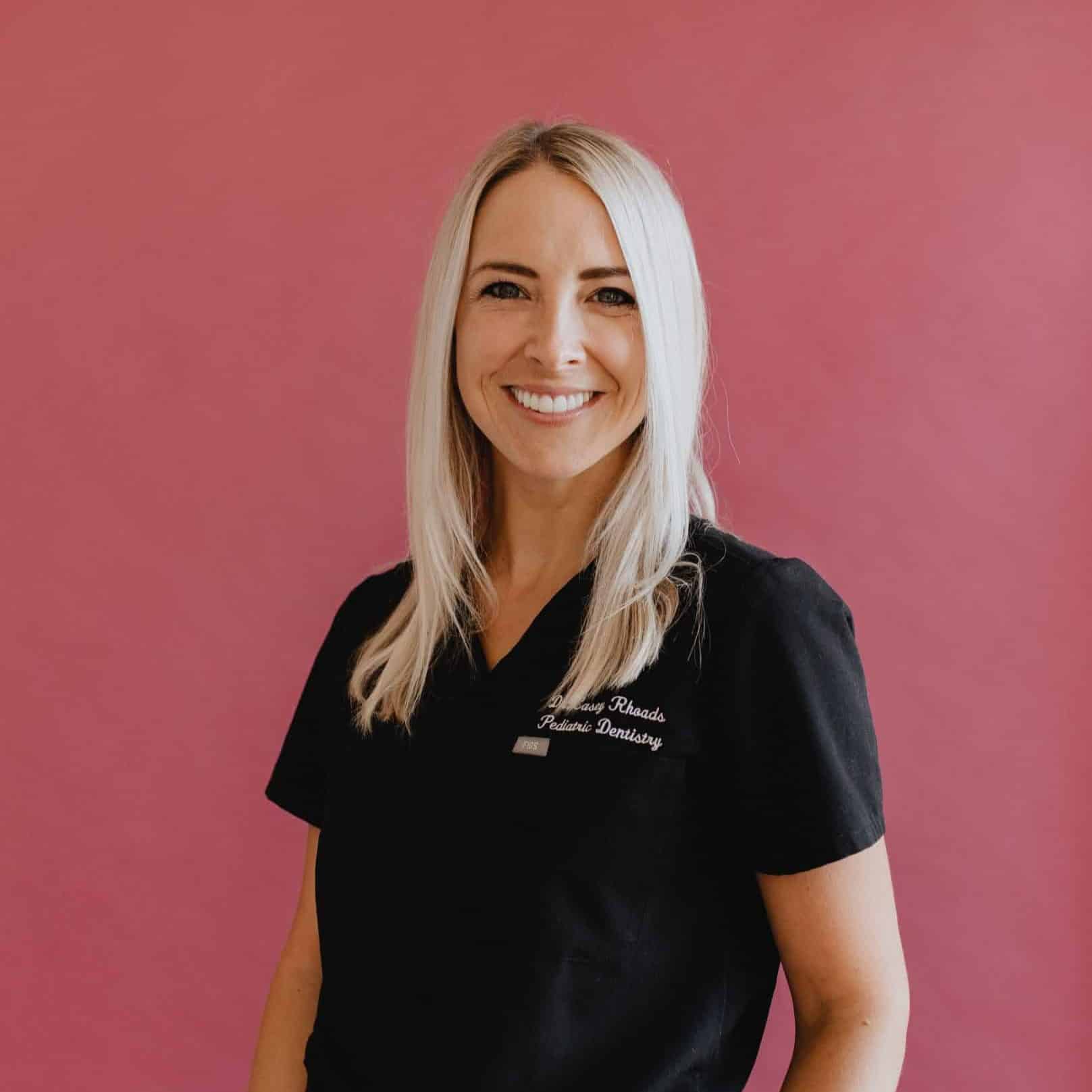
How Do I Know If My Child Has a Cavity?
At Honey Bee Pediatric Dental Co., we know that as a parent, you’re constantly tuned in to your child’s well-being—from skinned knees to sniffles. But tooth decay? That can sneak in quietly. Cavities in children are incredibly common, yet they often go unnoticed until a problem becomes painful. The good news? You don’t have to wait for discomfort to take action.
Our team in Lawrence, Lenexa, and Prairie Village, KS, is here to help you spot the early signs of dental decay—and prevent future cavities altogether. This guide will walk you through the signs, causes, dental treatment options, and the proactive steps you can take to keep your child’s smile strong.
This Article Will Address:
- How to recognize if your child has a cavity
- Whether cavities can exist without pain
- What causes cavities in kids’ teeth
- The typical age when children get their first cavity
- Treatment options available for young children
- How often your child should see the dentist
- What makes Honey Bee Pediatric Dental Co. uniquely trusted by families in Lawrence & Lenexa
Common Signs Your Child Might Have a Cavity
Cavities aren’t always obvious—especially at first. But there are a few subtle (and not-so-subtle) signs that something might be going on:
- Sensitivity to hot, cold, or sweet foods and drinks
- Complaints of toothaches or discomfort while chewing
- White spots, brown stains, or other discoloration on the teeth
- Visible holes or pits in the tooth surface
- Avoidance of brushing or chewing on one side
- Swollen or red gums near a specific tooth
Cavities can develop slowly and silently. That’s why catching them early is key. At Honey Bee Pediatric Dental Co., we use digital X-rays and intraoral imaging to spot issues that might not be visible during a visual exam.
Can a Child Have a Cavity Without Pain?
Yes—and it’s more common than you might think.
Many children don’t feel any pain until a cavity has grown deep enough to affect the inner layers of the tooth. Early decay might not trigger any discomfort, which is why routine dental checkups are so important.
At our offices in Lawrence, Lenexa, and Prairie Village, we offer gentle, thorough exams to detect cavities early—often before your child ever feels a thing. Our goal is always to treat problems before they become painful.
What Causes Cavities in Children’s Teeth?
Understanding what causes cavities is the first step toward prevention. Here are the most common culprits:
- Frequent snacking or sugary drinks (especially sticky or acidic foods)
- Inconsistent brushing and flossing routines
- Weak enamel due to hereditary or developmental reasons
- Low exposure to fluoride, which helps protect tooth enamel
- Deep grooves in baby molars where bacteria easily hide
- Nighttime bottle-feeding or nursing, which allows sugars to linger
At Honey Bee Pediatric Dental Co., we believe in anticipatory guidance—helping parents understand what to expect at each stage of a child’s oral development. We work alongside families to establish healthy, lasting habits from day one.
What Age Do Children Usually Get Their First Cavity?
It might surprise you: some children develop their first cavity as early as age 1, 2, or 3.
Tooth decay in baby teeth is a serious issue that can affect permanent teeth and overall oral development. That’s why we recommend scheduling your child’s first dental visit by age one, or within six months of their first tooth erupting.
We offer gentle infant oral evaluations and preventive dental care options like fluoride treatments and sealants to stop cavities before they start.
How Are Cavities Treated in Young Children?
At Honey Bee Pediatric Dental Co., we provide a full range of cavity treatments tailored to each child’s needs and comfort level:
- Tooth-colored fillings for discreet, effective repair
- Silver Diamine Fluoride (SDF) to halt decay in very young or anxious patients
- Pulp therapy or crowns for deep decay or damaged teeth
- Sedation options, including nitrous oxide, oral sedation, in-office IV sedation, and hospital general anesthesia for children who need extra help relaxing
We create a customized care plan for every child and make sure both kids and parents understand the treatment from start to finish.
How Often Should Kids See the Dentist to Catch Cavities Early?
Routine visits are the best way to catch cavities early—before they cause discomfort or damage.
We recommend:
- Every 6 months for cleanings, fluoride, and monitoring growth
- Starting at age 1, or within 6 months of the first tooth
- Additional visits if your child is at higher risk for decay
Early dental visits also give us the opportunity to monitor jaw and tooth development and guide parents through changes at each stage of childhood.
Why Parents in Lawrence, Lenexa, and Prairie Village Trust Honey Bee Pediatric Dental Co.
From the moment you walk into “The Hive,” you’ll see what makes us different.
- A kid-focused, anxiety-relieving environment
- Board-certified pediatric dentists: Dr. Casey Rhoads and Dr. Rebecca Ferns
- Gentle, individualized care using the latest technology
- Emphasis on parent involvement and oral health education
Our team is here to support your child’s journey to a healthy, confident smile—every step of the way.
Schedule a Cavity Check with Our Pediatric Dentists in Lawrence, Lenexa, or Prairie Village, KS
At Honey Bee Pediatric Dental Co., we don’t just treat cavities—we work to prevent them, empower families, and create joyful dental experiences. Whether you’re in Lawrence, Lenexa, or Prairie Village, our modern, welcoming office and expert team are ready to make your child’s visit a positive one.
Call our office or book online to schedule your child’s dental exam—and let’s build a healthy smile together.
Sources
- American Academy of Pediatric Dentistry
- Centers for Disease Control and Prevention – Oral Health
- National Institutes of Dental and Craniofacial Research

Dr. Casey Rhoads, originally from Hays, Kansas, has been a trusted pediatric dentist in the Kansas City area since 2016. Known for her exceptional communication skills and compassionate approach, Dr. Rhoads prioritizes honest, empathetic care to help ease anxiety and create a positive dental experience for children and their parents. Outside of the office, she enjoys traveling and spending quality time with her husband and three children, cherishing every moment with her family and young patients alike.
